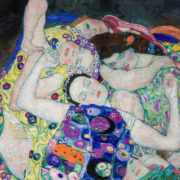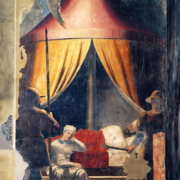Bion, Foulkes and empathy
Abstract
I am trying to show how we can make use of the insights of both Bion and Foulkes to create two vectors which have points of convergence and which help us to uncover the deeper truths which groups so often try to hide from themselves. The place of empathy, sympathy, compassion and pity continue to call for our attention. Human beings are capable of experiencing and acting upon those feelings; we also are capable of anihilating those feelings with the result that we become inhumane, arrogant, capable of horrific actions towards others whom we cease to regard as in any way being of the same common stuff as ourselves. Bion’s experiences in WW1 immersed him in the horrors of front-line warfare and he never ceased to draw on this experience in his exploration of primitive psychic processes. Foulkes did not undergo such trauma as he was behind the lines in Read more



